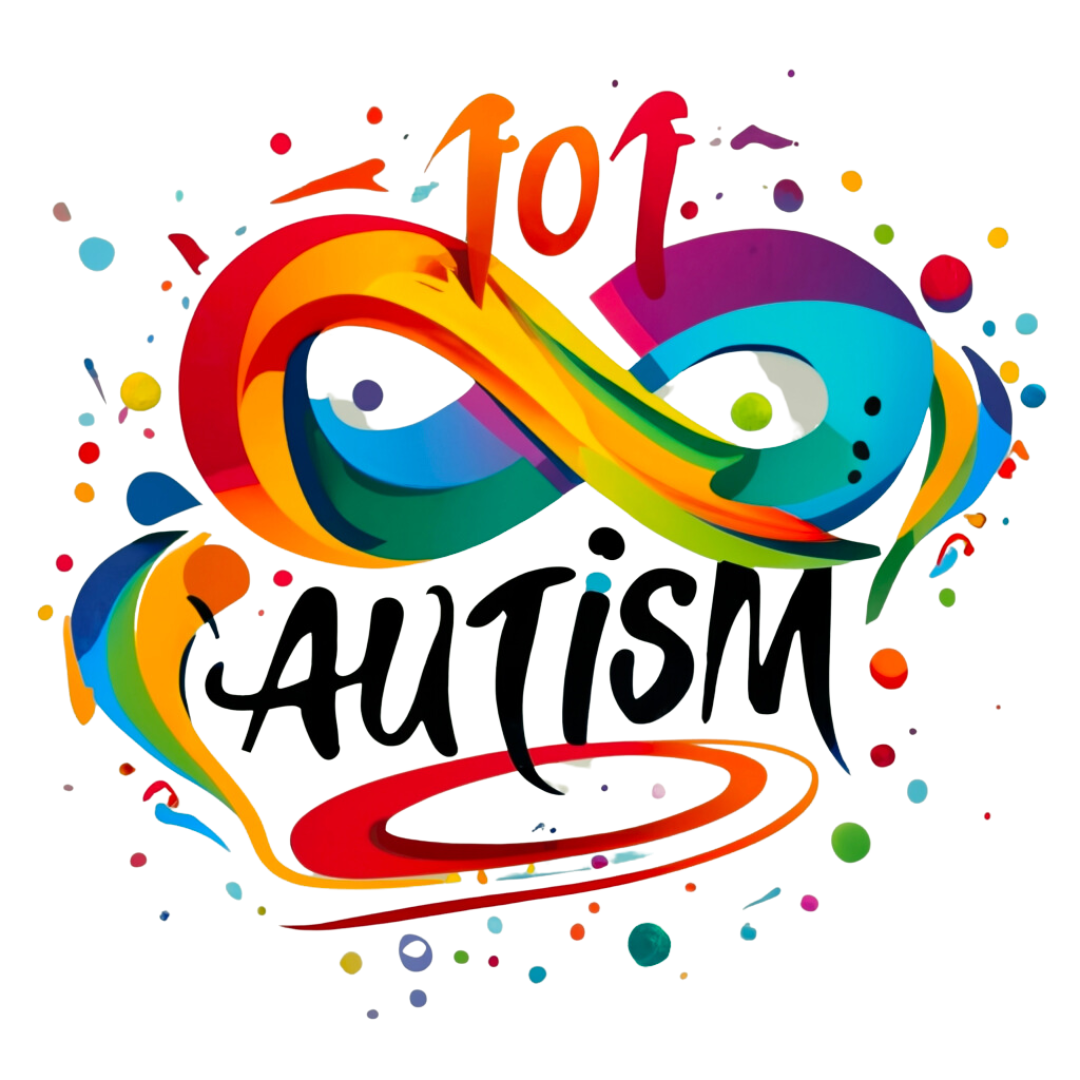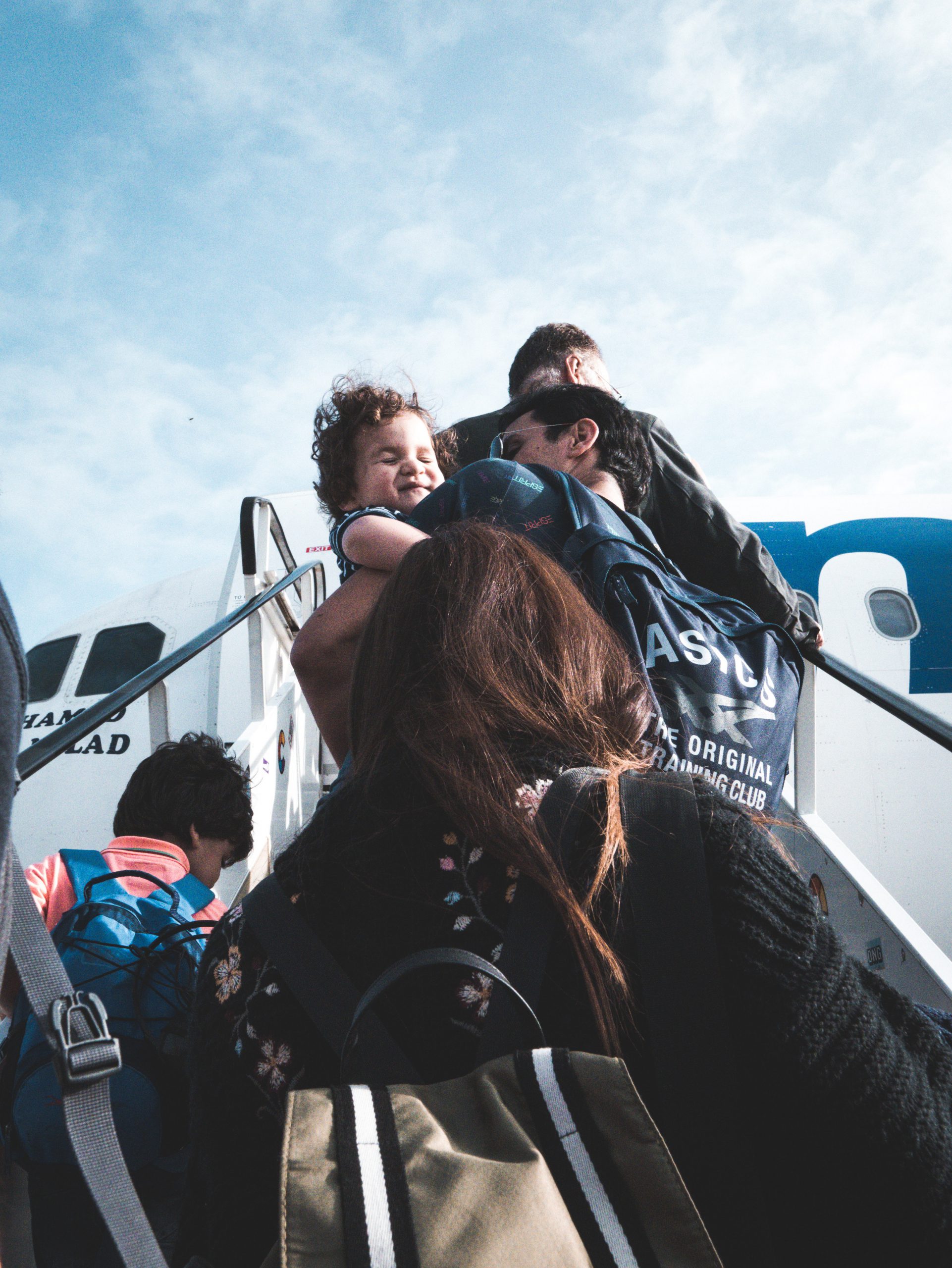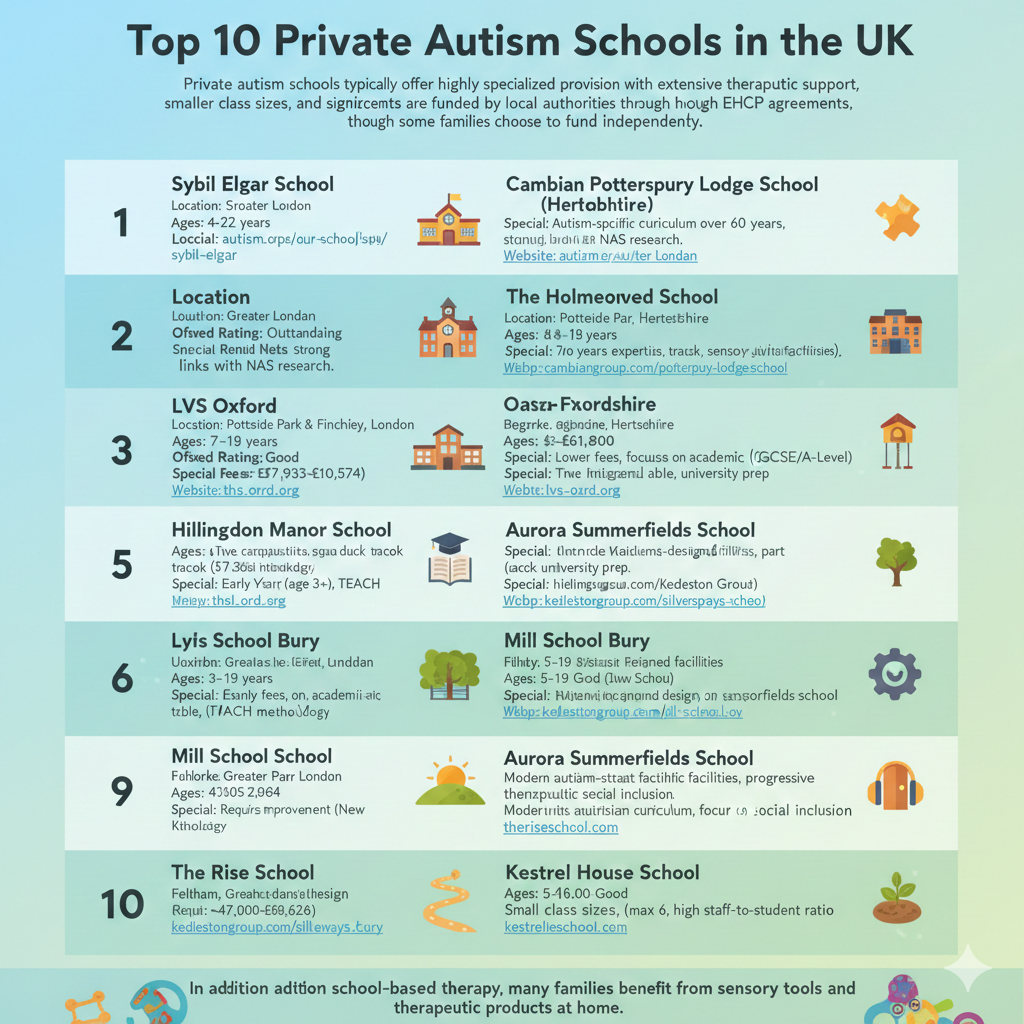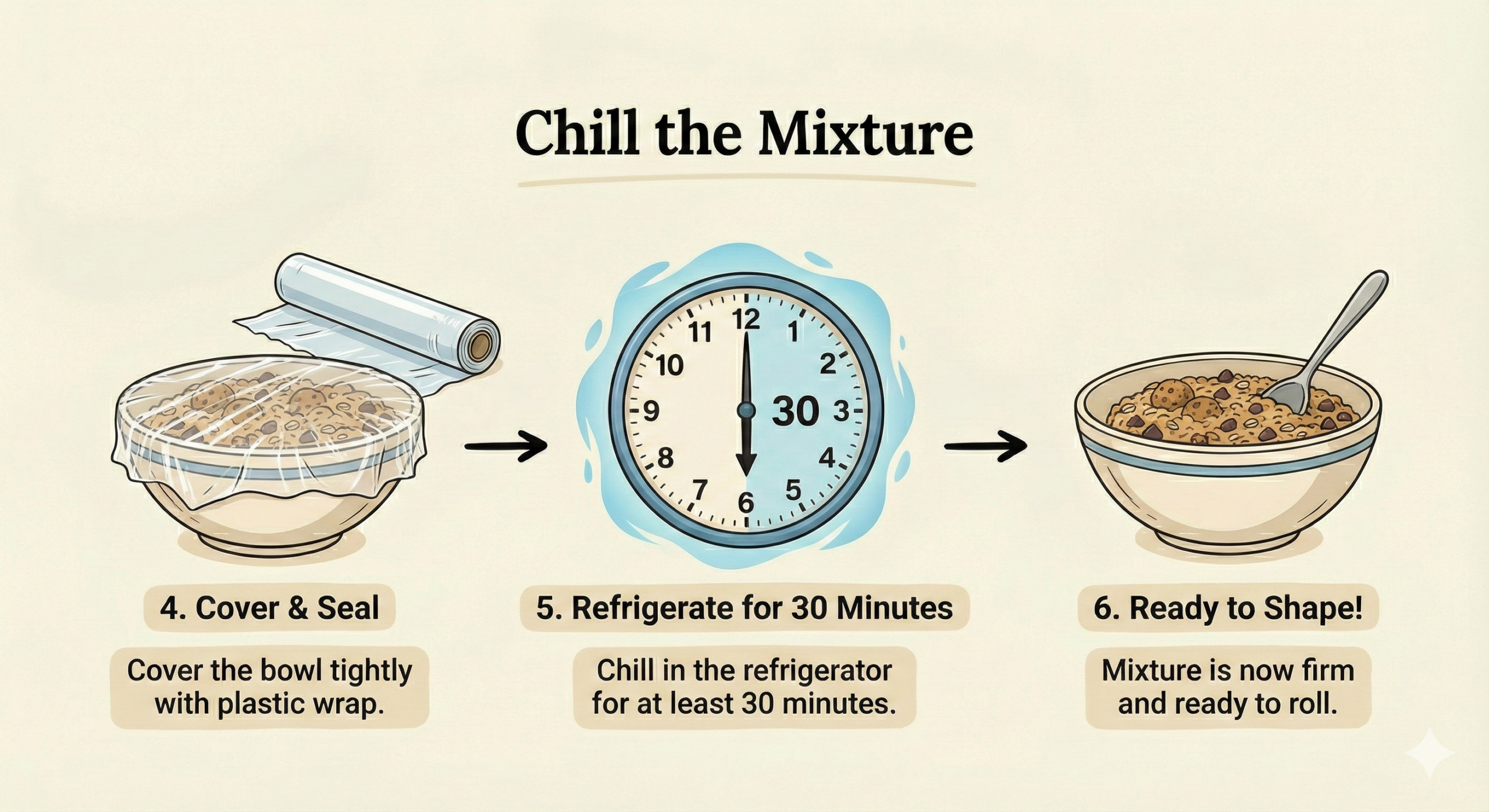Finding Your Perfect Getaway: Autism-Friendly Travel Destinations
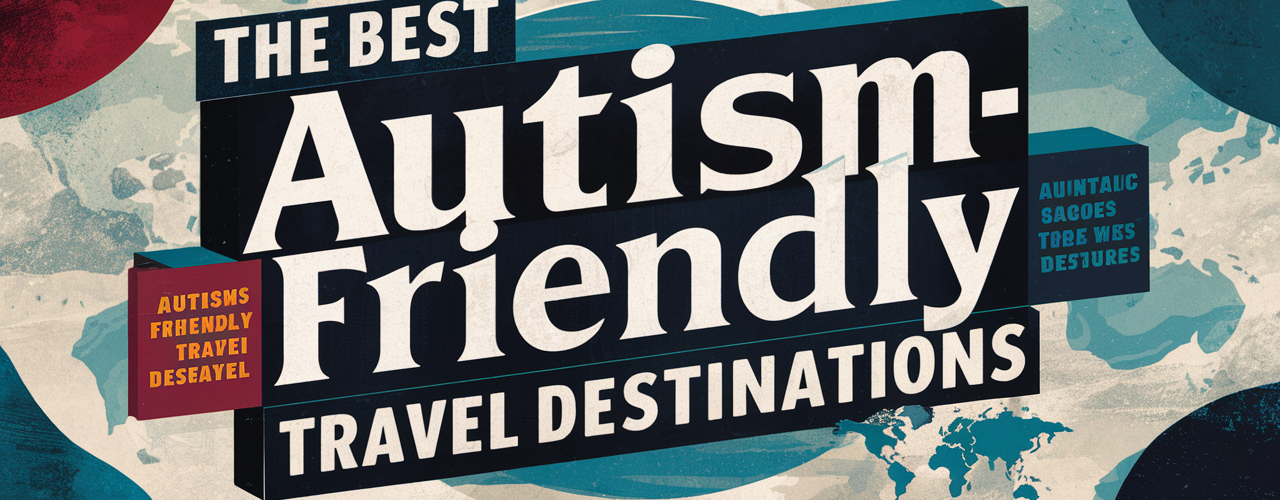
Traveling with an autistic individual requires careful planning and consideration. Sensory sensitivities, social anxieties, and the need for routine can challenge navigating unfamiliar environments. But this shouldn’t deter families from experiencing the joy of travel and creating lasting memories. The key lies in choosing destinations that cater to diverse needs and offer a supportive, inclusive atmosphere.
This blog post explores some fantastic autism-friendly travel destinations, each offering unique experiences and amenities to ensure a smooth and enjoyable trip for everyone.
Theme Parks that Embrace Sensory Needs:
- Morgan’s Wonderland (San Antonio, Texas): This theme park is specifically designed for individuals with special needs. It features wheelchair-accessible rides, quiet spaces for relaxation, and staff trained in assisting guests with autism.
- Sesame Place (Langhorne, Pennsylvania): Home to beloved Sesame Street characters, Sesame Place is a Certified Autism Center. It offers sensory guides, quiet rooms, and low-sensory areas to ensure a comfortable experience.
- Legoland Florida Resort (Winter Haven, Florida): Legoland provides a “Hero Pass” for guests with disabilities, allowing them to bypass queues. The park also has quiet rooms and low sensory areas.
Museums that Encourage Exploration and Learning:
- The Children’s Museum of Indianapolis (Indianapolis, Indiana): This renowned museum boasts an impressive collection of interactive exhibits, many catering to sensory exploration. It also offers designated quiet hours and sensory-friendly events throughout the year.
- Please Touch Museum (Philadelphia, Pennsylvania): Designed for younger children, the Please Touch Museum encourages hands-on learning and exploration. Its exhibits cater to various sensory needs and provide resources for families with autistic children.
- Exploratorium (San Francisco, California): This science museum is about interactive learning and experimentation. Its exhibits engage multiple senses and provide a stimulating yet comfortable environment for exploration.
Nature Escapes for Tranquility and Sensory Experiences:
- Great Smoky Mountains National Park (North Carolina & Tennessee): With its stunning natural beauty and diverse hiking trails, the Great Smoky Mountains National Park provides a serene escape. The park offers ranger-led programs and sensory-friendly activities for families.
- Acadia National Park (Maine): Acadia’s rugged coastline, scenic drives, and accessible trails make it a perfect destination for enjoying the outdoors. The park also offers resources and programs for visitors with disabilities.
- Yellowstone National Park (Wyoming, Montana, and Idaho): Yellowstone’s geothermal wonders and abundant wildlife provide a captivating experience. The park offers accessible boardwalks, ranger-led programs, and resources for visitors with disabilities.
Additional Considerations for Planning Your Trip:
- Research and Contact: Before finalizing your plans, research specific accessibility features and resources offered by your chosen destination. Reach out to hotels, attractions, and transportation providers to discuss specific needs and potential accommodations.
- Prepare Visual Aids: Visual schedules and social stories can help autistic individuals understand and anticipate the travel experience, reducing anxiety and facilitating smooth transitions.
- Pack Familiar Items: Bringing along familiar comfort items like blankets, toys, or headphones can offer security and routine in unfamiliar environments.
- Prioritize Communication: Communicate openly and honestly with your autistic family member about the trip, addressing concerns and ensuring their needs are met.
Frequently Asked Questions about Autism-Friendly Travel
Q: How can I find more autism-friendly destinations?
A: Several online resources can help you discover additional destinations and travel tips. Some helpful websites include:
- Autism Travel Club: Offers resources, destination guides, and a supportive community for families traveling with autistic individuals.
- The International Board of Credentialing and Continuing Education Standards (IBCCES): Provides a directory of Certified Autism Centers, including travel destinations, attractions, and hotels.
- Autism Speaks: Offers travel resources and tips for families with autistic children.
Q: What are some essential items to pack for an autistic traveler?
A: Consider packing:
- Comfort Items: Familiar toys, blankets, or stuffed animals can provide security.
- Sensory Tools: Noise-canceling headphones, fidget toys, and weighted blankets can help manage sensory overload.
- Visual Aids: Visual schedules, social stories, and picture cards can aid communication and understanding.
- Medication and Medical Information: Ensure you have an ample supply of necessary medications and a document outlining medical needs and emergency contact information.
Q: How can I prepare my autistic child for the travel experience?
A:
- Talk about the trip in advance: Use visuals and social stories to explain what to expect during the journey and at the destination.
- Practice parts of the trip: Role-play airport security or rehearse boarding a plane to familiarize your child with the process.
- Create a visual schedule: A visual timeline can help your child anticipate the sequence of events and transitions throughout the trip.
- Pack familiar items: Bringing along favorite toys and comfort items can ease anxiety and provide a sense of routine.
Q: What if my child has a meltdown during the trip?
A:
- Stay calm and be patient: Meltdowns are often a response to overwhelming sensory input or anxiety.
- Please move to a quiet space: Find a less stimulating environment where your child can decompress and regulate emotions.
- Offer comfort items and sensory tools: Familiar objects and calming sensory input can help your child regain composure.
- Communicate with understanding: Avoid punishment or scolding; instead, focus on providing support and reassurance.
Q: Are there any travel insurance options specifically for individuals with autism?
A: Some travel insurance companies offer specialized plans that cover additional needs for travelers with disabilities, including autism. Research and compare different providers to find the best coverage for your family’s needs.
Tips for Planning an Autism-Friendly Vacation
- Research, Research, Research
Before planning your trip, research the destination and attractions to ensure they offer autism-friendly services and accommodations.
- Pack a Sensory Kit
Pack a sensory kit with earplugs, headphones, and a weighted blanket to help manage sensory overload.
- Plan for Downtime
Plan for downtime and relaxation, allowing your family to recharge and avoid sensory overload.
- Communicate with Your Child
Communicate with your child about the trip, including what to expect and what to do in case of an emergency.
- Be Flexible
Be flexible and prepared for unexpected situations, and remember that it’s okay to take a break or change plans if needed.
Reference List
Due to the nature of this blog post and the limitations of my knowledge cutoff date (November 2023), I cannot provide specific links or publication dates for the resources mentioned. However, I can offer guidance on where to find relevant information:
Organizations and Websites:
- Autism Travel Club: Autism Travel Club offers resources, destination guides, and a supportive community for families traveling with autistic individuals. This website provides practical advice and destination insights to ensure that travel experiences are accessible and enjoyable for everyone involved, promoting inclusivity and understanding in the travel industry.https://autismtravel.club/
- The International Board of Credentialing and Continuing Education Standards (IBCCES) is recognized for its standards development in various industries. It specifically creates certified training and certifications for professionals working with individuals with autism and other cognitive disorders. These certifications ensure that these professionals have the necessary skills and knowledge to effectively support individuals with autism in various settings, including educational, healthcare, and leisure environments.
- Certifications Provided by IBCCES:
- Certified Autism Specialist (CAS): This certification is designed for professionals working directly with individuals with autism, ensuring they have the training and knowledge required for effective support.
- Autism Certificate (AC): A knowledge-based certificate for individuals seeking a foundational understanding of autism and how to cater to the needs of those with this diagnosis.
- Certified Autism Center (CAC): This designation is for organizations with trained staff who can provide a supportive and understanding environment for individuals with autism.
- How IBCCES Certifications Benefit the Community:
- Building Confidence: Families can feel more at ease knowing they are interacting with professionals who have a proven understanding of autism and how to adapt to interactions and environments effectively.
- Enhancing Professional Skills: Professionals in education, therapy, and healthcare can augment their understanding and deployment of strategies that significantly impact their work with individuals with autism.
- Supporting Inclusivity: By promoting certification and specialized knowledge, IBCCES helps foster inclusivity in various sectors, making a wide range of settings more accessible to individuals with autism.
- For more information, visit their website here. This resource can help you understand certification processes and benefits and how they can enhance interactions and support for individuals with autism domestically and globally. https://ibcces.org/autismcertifications/
- Autism Speaks: https://www.autismspeaks.org/
- National Park Service: The National Park Service’s official website provides information on accessibility features, ranger-led programs, and resources for visitors with disabilities at various national parks across the United States.
Additional Resources:
- Books and Guides on Autism-Friendly Travel: Explore online bookstores or libraries for specialized travel guides and resources offering tips and recommendations for traveling with autistic individuals.
- Travel Blogs and Forums: Connect with other families who have experience traveling with autistic individuals through online communities and forums.
- Social Media Groups: Join social media groups focused on autism-friendly travel to share experiences, ask questions, and gain insights from other families.
For families and organizations looking for certified support for individuals with autism, The International Board of Credentialing and Continuing Education Standards (IBCCES) offers valuable resources. IBCCES is re
Planning and preparation are critical to a successful and enjoyable travel experience. By understanding and addressing the specific needs of your autistic family member, you can create lasting memories and foster a love for exploring the world together.
🌟 LABOR DAY 2025: The Ultimate Autism Parent Shopping Guide (Save Up to 40% Today Only!)
Celebrating Christmas with Autistic Adults: Thoughtful Gifting Guide TL;DR (Quick Answers) Start with preferences: ask or check a short list of likes/dislikes, textures, and noise tolerance. Safe bets by need: noise-reducing headphones, weighted lap...
Your Guide to the World of Autism Conferences in 2026: Finding Your Community and Your “Why”
Introduction: Welcome to the Conversation Hello, and welcome. As both an educator and a parent to a wonderful autistic adult, I know that stepping into the world of autism can feel like learning a...
What Are the Resources Available for Autistic Children and Their Families?

Autism spectrum disorder (ASD) is a condition that affects an individual’s communication and behavior during development. Those with ASD may find it challenging to interact with others, grasp social cues, and express themselves. Additionally,...
Understanding Autism in India: Challenges, Support Systems, and Path Forward

Autism Spectrum Disorder (ASD) affects millions across India, yet awareness, diagnosis, and support services remain uneven—especially outside major cities. This guide explains the current landscape, practical resources, and steps toward a more inclusive future....
TRAVEL TIPS FOR CHILDREN WITH AUTISM SPECTRUM DISORDER

Hello, hey guys. Today, I’m going to talk about traveling. Everyone has to travel. You can’t get away from it, whether you’re going to see relatives, whether you want to go on holiday, whether...
Toyk Aqua Magic Mat: Mess-Free Educational Drawing Fun

The Toyk Aqua Magic Mat is a fun, educational drawing tool designed for children. It offers a mess-free, water-based doodling experience on a 40×28 inch reusable mat that promotes fine motor skills, color recognition, and hand-eye coordination. Lightweight and portable, it’s safe for kids and enhances creativity and learning.
Top 20 Autism Schools in the UK: Complete Guide for Parents (2025)

Choosing the right school for your autistic child is one of the most important decisions you’ll make as a parent. Whether you’re exploring private specialist settings or council-funded state schools, this comprehensive guide covers...
The world through Saar eyes

See the world through my eyes as a 17 years old autistic child. Hello, my name is Saar, and I’m so happy to share a bit about myself with you. I’m 17 years old...
The Sensory-Friendly Kitchen: A Guide to Stress-Free Family Meals

Why the Kitchen Matters: The Sensory-Cooking Connection The Hidden Truth: Autism is not a behavioral disorder. It’s a sensory processing disorder with behavioral consequences. When a parent says, “My child only eats 5 foods,” what they’re often...
The Real Cost of Adult Autism Assessment in 2026: A Financial Guide

By Dror Arbel | Founder, 101Autism.com One of the most frequent questions I receive at 101Autism is: “How much is this actually going to cost me?” The financial barrier to a formal diagnosis is...

